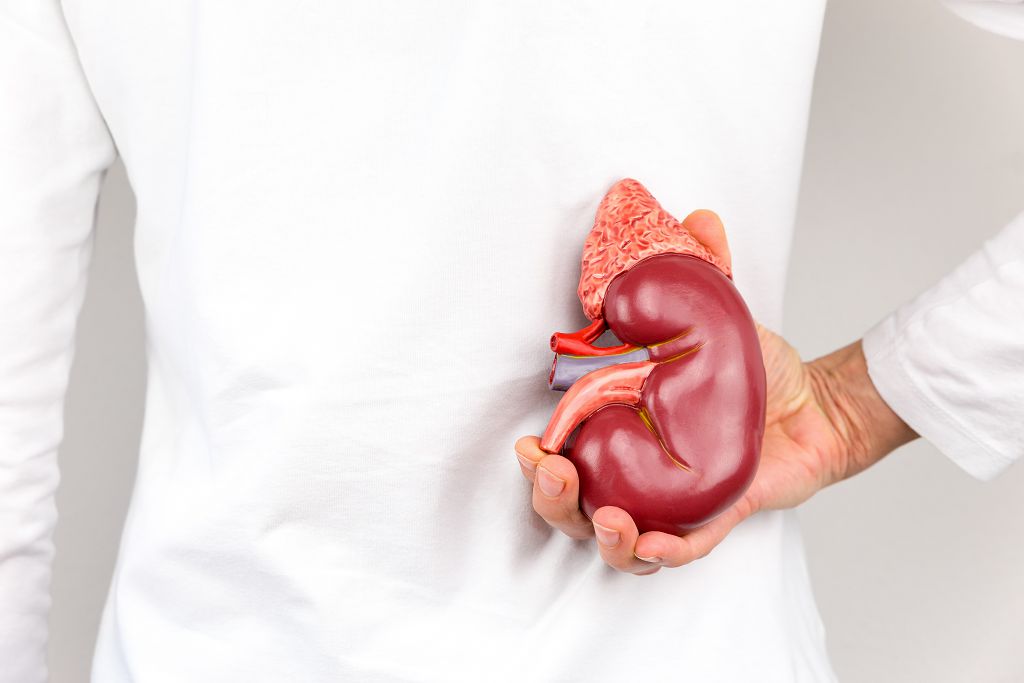Kidney transplant (also known as renal transplant) is the transplant of a donor’s kidney into the pelvic of the donee while the original kidney will not be excised (with the exception of tumor or stone issue). The source of kidney comes from living donor and brain-dead donor. Kidney transplant is the best cure for uremia, which produces the best life quality but also the best survival rate among the three therapies for end-stage renal disease (hemodialysis, peritoneal dialysis and kidney transplant).
What is living donor kidney transplant?
Living donor kidney transplant refers to the nephrectomy of kidney for transplant donation to another person. According to the law, the criteria for living donor is the fifth-degree relative (i.e. parents, children, or siblings, or spouses with more than 2 years of marital relation) and undergoes tissue matching with qualification before conducting the surgery. Living donor transplant can reduce the waiting time for kidney transplant while better matching kidney transplant will have higher survival rate.
What are the benefits of living donor transplant compared with that of brain-dead transplant?
- Better transplant survival rate.
- More pre-operative preparation and matching option.
- Time for organs to activate normal functions after transplant shortening.
What are the criteria required for donors of living donor kidney transplant?
- Healthy adults aged 20 years and older.
- Two kidneys both working normally.
- Without diabetes, Hypertension, tuberculosis and other chronic diseases, absence of tumor history or high-degree contagious disease (i.e. AIDS).
- Voluntary donation of kidney with pure motives.
The life, mental and psychological conditions of donors will be evaluated deliberately to assure the absence of potential problems and will not affect the health of donors. Meanwhile the tissue antigens of the donors and donee are matched for the ideal compatibility of the two. Once the evaluation is passed, the living donor kidney transplant can then be conducted.

How is current living donor kidney transplant and kidney removal surgery implemented?
Laparoscopic operation is performed to replace traditional operation for harvesting the kidney. The wound is small, and donors experience less pain after operation and recover fast. In general, donors will be able to eat and get off bed to walk around second on post-operation day, who can also be discharged from the hospital in 3~5 days after the operation.
What impact will it have on the health of donors when they donate a kidney?
Under normal circumstances, after the human body donates one kidney, the other kidney will be able to take full burden of all kidney load without adverse effect on the physiological function of the entire body or affect the life of the body. International and domestic literature suggests that the follow-up study on the kidney function abnormality, high blood pressure, proteinuria and other long-term complications of kidney donors over the years do not increase when compared with people of the same age.
What examinations are required before the donation?
- Blood type, tissue matching examination and cross-matching test are conducted.
- Blood is drawn to test renal function and analyze urine.
- ECG, chest X-ray, abdominal ultrasound, kidney CT, and nuclear medicine (NM) renal function check.
- Co-diagnosis with Department of Psychiatry and social worker evaluation.
What are the risks and complications associated with living donor kidney transplant and kidney removal surgery?
Living donor transplant operation is similar to the general operations, involving risk such as wound infection, pneumonia, and allergy against anesthesia and bleeding.
Do patients need to pay for living donor kidney transplant laparoscopic operation and kidney removal surgery at own expense?
Currently it is reimbursed by the national health insurance and just like other operations, and you will only need to pay for some of the costs (i.e. additional ward fees, medcaineor food) and some self-paid materials needed for laparoscopic operation between NTD10,000 and NTD20,000.
I would like to donate kidney to my relatives. Where should I seek for medical advice?
You can contact us via the follows:
- Phone: (04)22052121 Ext. 1671 Kidney Health Center; or visit the hospital on Tuesday and Wednesdays in person and discuss with the physicians of Kidney Transplant Outpatient in Room 610, 613 and 617 (Please go to the outpatient directly).

